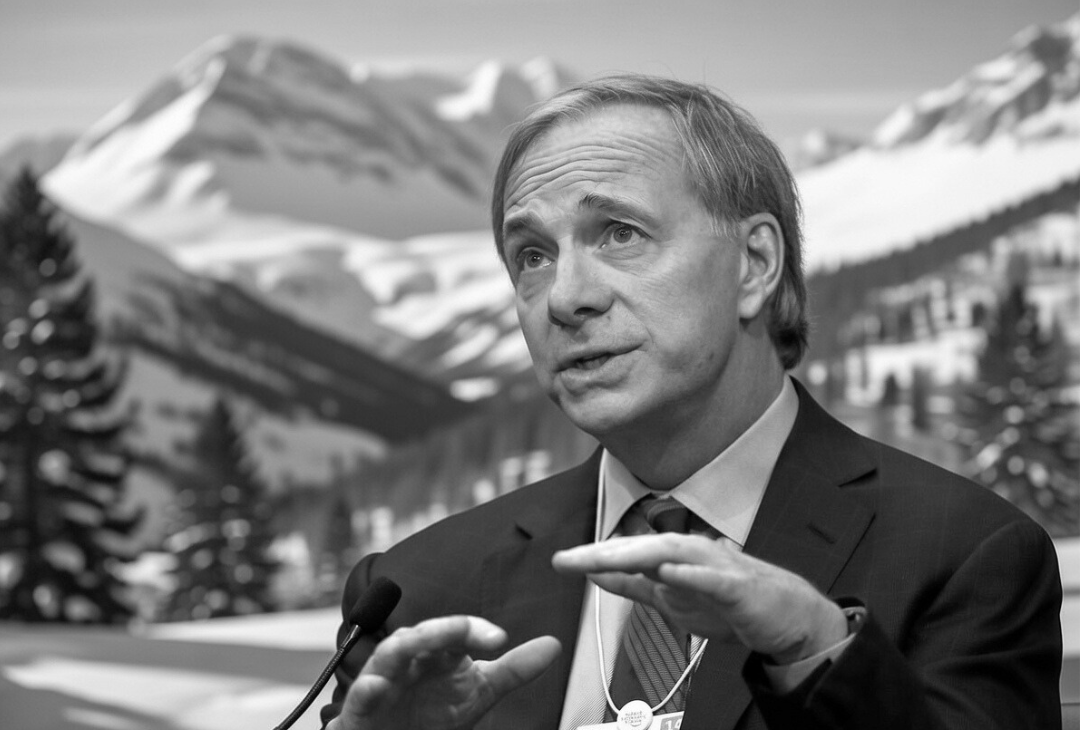Fireside Primer: “New Era” Investing Requires Going Beyond the Investing
Investing and investment management is often thought of as finding ways to make spectacular gains. But in reality, it’s more about capital preservation and compounding the wealth year after year, decade after decade. As a fiduciary working with families who have already built significant wealth, that is the focus.
(Sune Hojgaard Sorensen is an Advisory Board member of the BFI Capital Group, an asset manager with BFI Infinity Inc., and a regular contributor to our blog. Sune will be our Special Guest for the upcoming Fireside Conversation on May 6th titled, Time for ‘real’ and ‘digital’ assets – investment opportunities beyond traditional asset classes. Click here to register. Today’s article covers how investing in the “New Era” requires more holistic, comprehensive planning, a core them to be covered more in the May 20th Conversation.)
Once you have built significant wealth, what are the real risks you face?
Many people and financial media tend to think of the main risk as market risk and the inherent volatility. However, with generational wealth comes extended investment horizons. This means that market risks – the volatility day-to-day – should not really be a concern. It’s more of an opportunity as you have the edge of time on your side.
The real risks – those that lead to permanent loss of wealth are both external and internal
In Emerging Markets and historically in Developed Markets – War, Revolution, Wealth Confiscation & Currency Debasement are the real destroyers of wealth. Wealth confiscation and currency debasement are increasingly back in vogue globally and the dynamics for the decade ahead makes a continuation and escalation of these trends a certainty.
The other source of real risk is internal: at the personal level in terms of decision making as well as sub-optimal family dynamics.
At the personal level several things are at play, with some being as old as time itself. Looking at the long arch of history it is clear that human knowledge in fields like mathematics and science are cumulative, but the emotional arts struggle to pass effectively between generations. It would appear that the most important things can’t be taught; they must be learned. This seems to be particularly true of financial matters. Money, financial markets, and our related frameworks have seen a constant evolution of both systems and technology, but human behavior remains the same. The ancient forces of fear and greed tends to rule, especially at the extremes.
,What got you there may not be what keeps you there
One of the interesting parts of working closely with entrepreneurial families is that you get to learn and glean some of the ingredients that go into wealth creation. Initially it takes things like a strong vision, commitment, preservation, risk taking/management, a lot of hard work and most will admit a little luck at key moments. When you start to switch from that initial period – the time of the builder* - to the wealth preservation/compounding stage, it requires some of these skills but also others that may be counter intuitive to someone who spent 30-40 years aggressively building businesses. Few individuals have the equal capacity for both. A balanced skill set can sometimes be found within families and/or by ‘the builder’ having the awareness and foresight to establish the right team around the family.
In a book I read last year, I found some interesting perspectives on both of these dynamics. When Forbes’ Richest People in America list was first published in 1982, it included 400 men and women. In 2005, 23 years after that initial list, an interesting comparison was made between the lists of 1982 and 2005.
Can you guess how many of the families from that initial list was still on the list in 2005?
It turned out that only 43 of the 400 richest people remained – that is less than 11%.
Obviously, some just stood still, and while new sectors like the tech sector created new wealth, others had single line businesses and failed to expand. A survey was done of the families that were no longer on the list to discern some common denominators. Of the commonalities, some were quantitative in nature: broader business & investment decisions had just not worked out. But most - and the most dramatic - came from the qualitative aspects, starting with the human capital, or the families themselves and the advisors and teams they decided to work with.
Poor family governance, especially, around generational transfers were a common factor, as were family disputes, divorce, and lawsuits.
Sub-optimal tax and estate planning strategies made a real difference over the decades. If people spent half as much time as they do thinking about the stock market & ‘What to own’, and instead focused on ‘How to own’, they would have been much better off. That is where the real risk resides.
On the investment front, the real risks of significant loss of wealth again comes mainly from human/qualitative factors: letting fear and greed take control, lack of coherence and adherence to investment strategies and risk management plans, becoming victims of fraud due to greed, and the lack of proper gatekeepers. The other one that is non-family related is currency debasement, which again with proper investment strategies can be managed and harnessed.
So, what is an investor to do as we head into this fast-changing decade?
First, focus on some of the things that don’t change, namely human nature at the individual, family, and societal levels. Hope and fear are sub-optimal investment strategies. Family relations can, even at the best of times, be complex and contentious in nature. Well-run societies bring much good, but the opposite is also true. There are risks at all these three levels even before you start to think about deploying capital. Those who will be successful in preserving and compounding their wealth over the coming decades will be those who understand this and set about designing the right solutions for managing these risks effectively.
Secondly, in terms of the allocation of capital, it’s important to take stock of the current situation and realize that “where we have been” for the last couple of decades will not be “where we are heading” for the one ahead.
Recently I was driving with my good friend Daniel Zurbruegg, managing partner and CEO of BFI Infinity, to Liechtenstein from Zurich. Taking in the amazing scenery – as someone growing up in a country that is as flat as a pancake, mountains have a certain alure and they leave lasting impressions – the conversation shifted to big picture trends and the investment implications. As we both broadly share the points of view outlined earlier, we came to the question of “how would you position a portfolio if you were not thinking about daily share prices and being interesting to the talking heads on CNBC?”
While the specifics are for another day, the general themes that we landed upon were, ‘Permanence and Scarcity’ and ‘Innovation in key economic sectors supported by enduring long-term global trends’. As we made our way back towards Zurich - looking at the rugged permanence of the nature, discussing the enduring commitment to the rule of law in Switzerland, as well as taking in the physical manifestations of a nation that has worked its way from small-scale subsistence farming to becoming a ‘tiny global giant’ punching well above its weight in embracing innovation – it struck me that if I could build a portfolio with the profile of Switzerland that would be my choice for the decades ahead.
We will be exploring many of these dynamics and solutions in more detail in the ongoing BFI Fireside Conversation series. I hope you can make the time to join the ,Conversations.

*The Builder - In the seminal book; ‘The Muqaddimah – An introduction to history’ written by the sage Ibn Khaldun in 1377, he writes, “Prestige (Power) lasts at best four generations in one lineage. The world of the elements and all it contains come into being and decays. Minerals, plants, all the animals including man.”
He makes the following observation on human systems of governance; “Nobility originates in the state of being outside. That is, being outside of leadership and nobility and being in a base, humble station, devoid of prestige. It reaches it’s end in a single family within four successive generations. This is as follows: The builder of the family’s glory knows what it cost him to do the work, and he keeps the qualities that created his glory and made it last. The son who comes after him has personal contact with his father and thus learned those things from him. However, he is inferior to him in this respect, inasmuch as a person who learns things through study is inferior to a person who knows them from practical application. The third generation must be content with imitation and, in particular, with reliance upon tradition. This member is inferior to him of the second generation, inasmuch as a person who relies upon tradition is inferior to a person who exercises independent judgement. The fourth generation, then, is inferior to the preceding ones in every respect. Its member has lost the qualities that preserved the edifice of its glory. He despises those qualities. He imagines that the edifice was not build through application and effort. He thinks that it was something due his people from the very beginning by virtue of the mere fact of their descent, and not something that resulted from group effort and individual qualities. For he sees the great respect in which he is held by the people, but he does not know how that respect originated and what the reason for it was. He imagines that it was due to his descent and nothing else. He keeps away from those whose group feeling he shares, thinking that he is better than they. He trusts that they will obey him because he was brought up to take their obedience for granted, and he does not know the qualities that made obedience necessary. Such qualities are humility in dealing with such men and respect for their feelings. Therefore, he considers them despicable, and they, in turn, revolt against him and despise him. The four generations can be defined as the builder, the one who has personal contact with the builder, the one who relies on tradition, and the destroyer.”
In this eloquent and brutally honest rendition of the common flow of the shifting of the generational sands, Ibn Khaldun lays bare the dynamics of family & human societies. It is the 1370s version of the “Fourth Turning” and timeless advice on governance of family wealth transitions, all wrapped into one.





